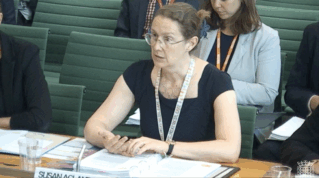The challenge of recruiting and retaining teachers at all levels is becoming increasingly acute, exacerbated in FE due to the sector’s substantially lower pay scales. That is the troubling backdrop for the country’s colleges as they strive to return to pre-Covid staffing levels, and it is no surprise that the services that were worse affected by the pandemic are now struggling.
Rising to a double challenge
FE providers are feeling the bite harder than most since they face an extra, double challenge: namely, the lower levels of pay they can offer due to underfunding and the fact that many of the technical and vocational lecturers they need can earn more within their chosen industry.
A report published by The Lifelong Education Commission and Chartered Institution for Further Education in February showed that average FE teacher wages were around £10,000 lower than those of school teachers – and even further behind universities.
The same document suggested that staffing in FE may have fallen by one-third in the past 10 years, and that the vacancy rate at colleges averaged about eight or nine per cent – double the pre-pandemic level.
In the several decades that I have been working in FE, I’ve never seen teacher recruitment problems as bad as this. Part of the difficulty for institutions like ours, which provides higher education (HE) provision for Luminate Education Group’s FE colleges, is that we’re the ‘poor relation’ in terms of our pay scales.
A homegrown approach
But colleges are finding innovative ways around this problem, including by adopting a ‘grow your own’ approach through their initial teacher education (ITE) provision. Introduced in 2018, ITE offers a non-traditional, apprenticeship-based route into the profession.
Here, ITE has provided a way for us to home-grow our FE teachers for our campuses in Leeds, Harrogate and Keighley to address the problem. We are basically talent-spotting as we train, and have had success stories in a number of fields including computer games and business doing so.
For those aiming to teach in FE in skill shortage areas such as maths and STEM, we also offer ITE bursaries to make the option more financially viable. And, as a widening participation (WP) institution, our teacher training is designed to fit around students’ commitments. That means we attract many people from industry who want to retrain and whose experience is so valuable for teaching.
Of course the ‘home-grown’ route can only do so much, and it is only a valid choice when your ITE provision is of a high enough quality.
Leading the way
University Centre Leeds has just been given a ‘Good’ rating by Ofsted for its offering; the first provider in the North East, Yorkshire and Humber to achieve this under the new inspection framework. Most of our trainees undertake their placements with Luminate Education Group and go on to gain employment at one of the group’s colleges, which is a sure sign we’re doing something right.
The Ofsted report highlighted how our trainees are fully embedded as members of staff within their teams; they’re not ‘visitors’ but valued colleagues. The inspectors also commented on the strength of our mentoring, and we make sure that the support network is there for trainees to link what’s happening in the education classroom with actual practice in the workplace.
Much more has to be done if we’re to successfully tackle this national crisis in teacher recruitment and retention. Targeted government funding is definitely needed to close the gap between the pay the FE sector (and its HE providers) can offer and what schools and universities can. An awareness-raising campaign is also needed to educate people about how much we need people with real-world industry experience to enter teaching.
Both of those matters, sadly, are out of our control. What we and our fellow post-16 education providers can do, for now, is ensure that we continue delivering quality ITE to provide a crucial pipeline of high-calibre new teachers to help us weather this storm.

















Your thoughts